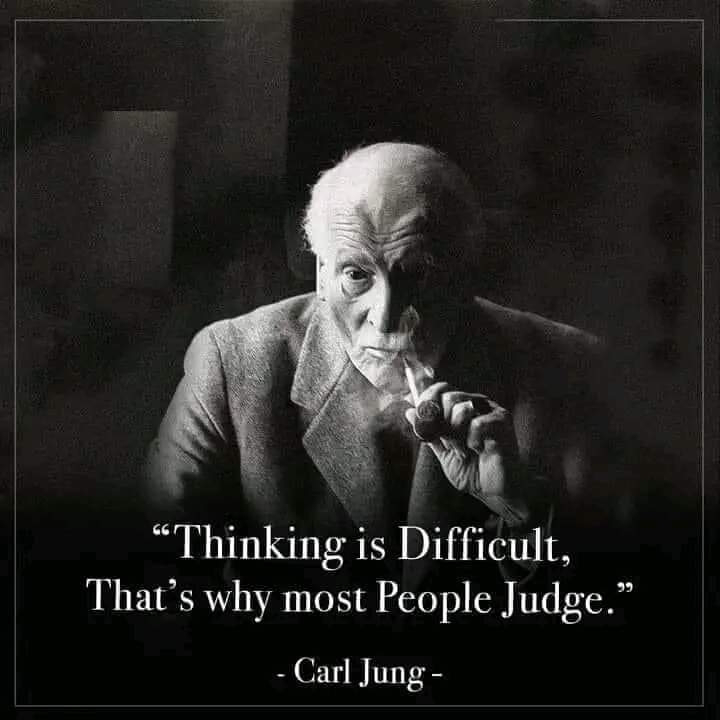The quote in the image, attributed to Carl Jung, states, "Thinking is Difficult, That’s why most People Judge.”
The quote in the image, attributed to Carl Jung, states, "Thinking is Difficult, That’s why most People Judge.” This quote touches upon a profound truth about human behavior and cognition. To think critically requires effort; it necessitates the engagement of numerous cognitive processes including reflection, analysis, and the willingness to confront complex and often uncomfortable realities. Jung suggests that due to the effort involved, many individuals resort to judgment, which is a more straightforward and less taxing process.
Judging often involves leaning on preconceived notions, biases, or stereotypes, allowing individuals to make quick assessments without engaging in the arduous work of deeper understanding. This behavior can be seen as a defense mechanism, protecting one from the labor of thinking and the vulnerability of not knowing or understanding.
On another level, Jung’s quote may also be reflective of a natural human inclination towards cognitive economy, where our brains are wired to conserve energy by taking shortcuts. Judgment serves as a heuristic—a mental shortcut that allows for rapid decision-making. However, this shortcut often comes at the cost of accuracy and depth.
Furthermore, the quote implicitly criticizes the state of discourse in society. In an age where information is abundant and complex, the propensity to judge rather than to think can lead to polarization and the lack of meaningful dialogue. It suggests that many societal conflicts could be mitigated if individuals committed themselves to the more strenuous path of critical thinking.
In essence, the quote is a call to introspection and intellectual humility. It challenges us to recognize the value in the laborious process of thought, to resist the easier path of snap judgments, and to strive for a deeper understanding of the world and the people in it. It encapsulates a fundamental principle of personal growth and societal progress: the idea that through diligent thought and reflection, we can move beyond superficial judgments to a place of empathy and wisdom.


